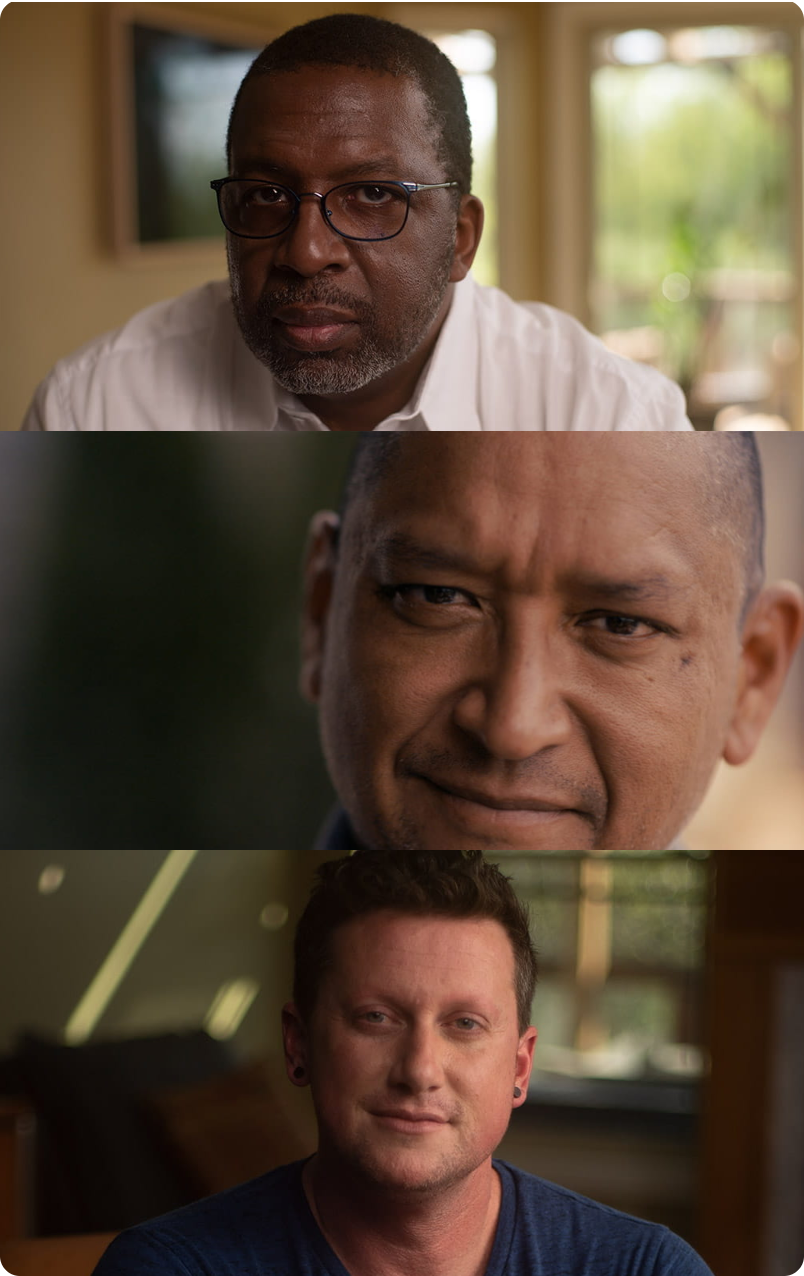Suicide is a national public health concern. Though preventable, someone dies by suicide every six hours in Michigan, and suicide is the tenth leading cause of death in the state.
SCROLL TO SECTION
Michigan by the Numbers
In Michigan in 2020,
Men account for almost
8 out of 10 suicide deaths
In 2020
the number of males who died by suicide was ALMOST 4X HIGHER than other genders.
of the suicide deaths in Michigan in 2020 were firearm related.
Comprehensive Suicide Prevention

Dr. Kristen Smith
Program Coordinator,
Preventing Suicide in Michigan Men
“PRiSMM meets men where they are…”
Listen to the full quote by pressing play below.
Comprehensive Suicide Prevention

The Michigan Department of Health and Human Services CSP Program's goal is to significantly expand suicide prevention efforts within the state.

In 2021, Michigan received funding for five years for the Comprehensive Suicide Prevention Program (CSP) from the Centers for Disease Control and Prevention (CDC). The program brings together key individuals and organizations to form the PRiSMM Partnership, which works to prevent suicide in Michigan men.

EXAMPLE Activity
Previously, most mental health and suicide prevention efforts in Michigan were focused on youth and young adults, but the Comprehensive Suicide Prevention funding has allowed the state to widen its focus to help at-risk adult men. For example, CSP provides information and resources to a construction company that is interested in improving mental health and preventing suicide among its employees.

The Michigan Department of Health and Human Services CSP Program's goal is to significantly expand suicide prevention efforts within the state.

In 2021, Michigan received funding for five years for the Comprehensive Suicide Prevention Program (CSP) from the Centers for Disease Control and Prevention (CDC). The program brings together key individuals and organizations to form the PRiSMM Partnership, which works to prevent suicide in Michigan men.

EXAMPLE Activity
Previously, most mental health and suicide prevention efforts in Michigan were focused on youth and young adults, but the Comprehensive Suicide Prevention funding has allowed the state to widen its focus to help at-risk adult men. For example, CSP provides information and resources to a construction company that is interested in improving mental health and preventing suicide among its employees.

Dr. Jodi Frey
Principal Investigator
Man Therapy Evaluation
“Our…team works to outreach to community organizations…to develop relationships and to learn ways that we can help meet their needs as they work to prevent suicide.”
Listen to the full quote by pressing play below.


Michigan's CSP program partnered with the Governor's Suicide Prevention Commission to develop a suicide prevention media campaign that targets adult men.

The campaign includes videos of Michigan men with lived experience sharing their stories with other men who may be struggling.
Michigan's CSP program has a dedicated epidemiologist.
The epidemiologist provides data presentations to the PRiSMM partnership each quarter to inform prevention strategies at the community level.
As an expert in data collection and analysis, the epidemiologist can:
-
Provide information and technical assistance to partners and communities
-
Empower others to gather and interpret data
-
Inform the identification of new partners

Megan Scott, MA
Communications Specialist
“Our PRISMM partnership allows for all stakeholders … to come together… ”
Listen to the full quote by pressing play below.
Recognizing that each new perspective offers insight and opportunities, Michigan's CSP program continually seeks to bring new and relevant voices to the table in order to reach at-risk adult men.
Some of the Department's partners include:
Man Therapy
Central Michigan University's Interdisciplinary Center for Health and Wellness
Henry Ford Health System
University of Michigan
The Michigan Department of Corrections
Business Leaders — predominantly male businesses such as construction and automotive.
People with Lived Experiences
The Michigan Department of Natural Resources
Those working in agriculture and other traditionally rural and male-dominated fields.

Dr. Kristin Smith
Program Coordinator,
Preventing Suicide in Michigan Men
“There is a place for everyone in suicide prevention...”
Listen to the full quote by pressing play below.
Moving Forward
The Michigan CSP program is partnering with the Michigan Department of Corrections to offer training opportunities. The training aims to create social change about mental health and increase help-seeking behavior.
Many of the individuals participating in these upcoming trainings are veterans and/or come from the Michigan State Department of Corrections. Veteran communities, employees of the Department of Corrections, and individuals who are incarcerated are represented in statistics relating to suicide deaths and suicidality. The Michigan Department of Corrections is dedicated to changing the system and culture surrounding suicide and suicide risk. Partnering with the CSP and engaging trainers in these programs are steps towards improving outcomes.
The Michigan CSP program is working with partners to change how suicide is discussed in the media.
The program provides technical assistance and guidance on best practices for partners as they steer media outlets and organizations towards more appropriate, meaningful communications on suicide and suicidality.
Another priority for the program is expanding and deepening partnerships across Michigan to dispel the myths and stigmas surrounding mental health and talking about suicide, especially for men.
The 988 Lifeline provides 24/7, free and confidential support for people in distress.
Call or text 988,
or chat online at 988lifeline.org
